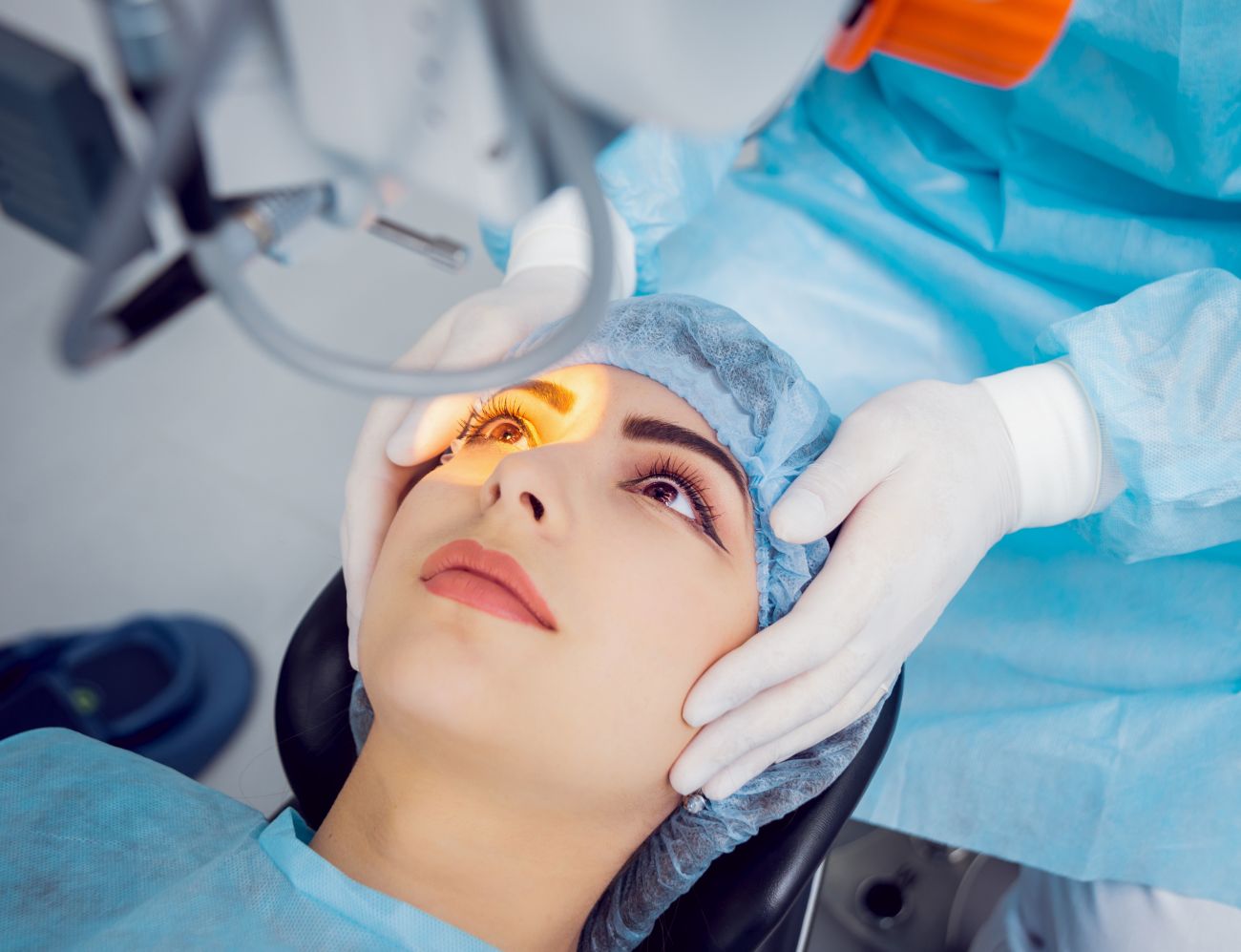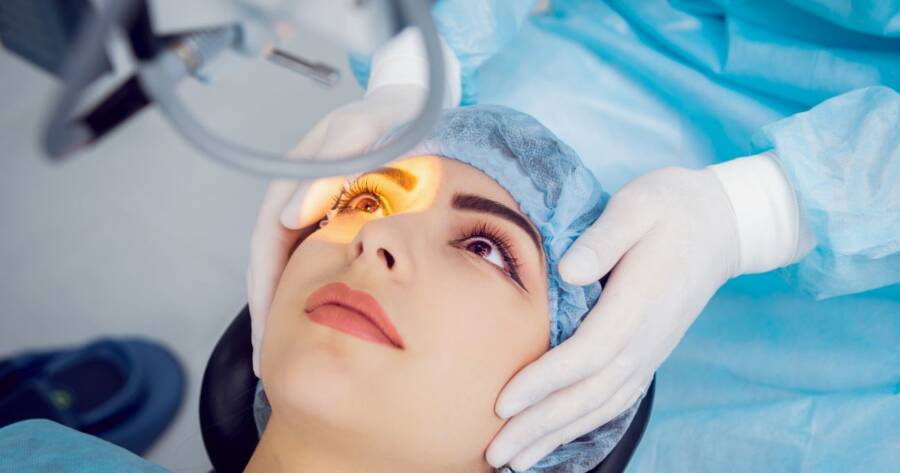Though the technology used for laser eye surgery has been around since the 1970s, it wasn’t employed by optometrists until the late 80s or approved for general use in the United States until 1996. While patients have always been intrigued with the thought of permanently correcting poor vision, the surgery was initially quite expensive, making it prohibitive for most candidates. Decades later, the costs are much lower and the results increasingly predictable, so more people than ever find it a viable option. Still, laser eye surgery isn’t a good fit for everyone who wears corrective lenses, so it’s important to understand how it works and who is a good candidate for this procedure.
Are You a Good Candidate?
The first thing to determine when you are considering laser eye surgery is if you are a good fit for permanent vision correction. Your doctor will examine your eyes to check things like corneal thickness, astigmatism, and the level of correction needed for perfect vision. You are not necessarily excluded from receiving the surgery if you have any of these issues, but it is possible that you won’t be a good candidate if you have thinner corneas. In addition, patients with extreme nearsightedness may be able to receive the surgery but require one or more additional visits for refinements to their eye shape to achieve a perfect result.
Regardless of other factors, you will need to meet certain criteria even to consider laser eye surgery, including:
- You must meet a minimum age requirement which is usually at least 18 to 21 years old.
- You must have no other eye issues like injury or infection.
- You must have had a stable prescription for at least one year.
- You cannot be pregnant or nursing when surgery is performed.
- You cannot have overly large pupils.
Every person is individual, so your combination of issues will ultimately determine whether you can experience good results with laser eye surgery, and your eye doctor will be able to assess that during your consultation. They will also account for things like your overall level of health to ensure that your body will handle the procedure without undue stress and recover with no complications. If you normally wear contacts, use glasses for several weeks before your visit. Contacts can alter the shape of your eye and affect your doctor’s ability to make an accurate assessment.
What’s the Difference Between LASIK and PRK?
You can expect similar results whether your eye care professional uses LASIK or PRK surgery. The main difference between these two is the method used to reshape the eye for improved vision. Doctors that perform LASIK surgery create a small flap to expose the cornea which is then reshaped. After the procedure, the flap covers the cornea again, and the eye heals faster. For PRK surgery, your eye surgeon will remove the covering of the cornea completely to access the area for the laser adjustment to the eye shape. The body will then need to replace those cells on its own, making recovery times longer for this type of laser eye surgery.
While people who receive PRK surgery may not see an immediate improvement in eyesight as the body heals and adjusts, this procedure can work for people who are otherwise contraindicated from LASIK because of dry eyes, thin corneas or large pupils. By the six-month recovery mark, the results of either procedure are almost identical.
Is Laser Eye Surgery Safe?
While every surgery has some level of risk, laser eye surgery is considered quite safe. In fact, only about 2-5 percent of patients experience any type of complication. When things do go awry, complications are usually minor and can include:
- Over correction or under correction of vision
- Misalignment of the pupil’s center
- Corneal damage
- Redness or irritation
- Eye infections
Finding the Right Surgeon
There are plenty of eye doctors that perform laser eye surgery, so you need to know what to look for in a qualified professional when you are considering this procedure. While the risks are small, a botched surgery can have lasting consequences for your vision and eye health, so you should fully trust your doctor before deciding to go ahead with this surgery.
Referrals from friends, family and colleagues who have received laser eye surgery should give you a good pool of qualified eye professionals to interview as well as recommendations of who you should steer clear of. Ask each potential candidate plenty of questions when you are researching possible eye surgeons. Some example questions are as follows:
- How much experience do you have performing laser eye surgery?
- How many of your patients experience complications, and how does that compare to the national averages?
- What licenses and certifications do you hold?
- Do you belong to professional organizations such as the American College of Surgeons?
- Is the surgical center local to me?
- What type of after care can I expect to receive?
- Do you offer payment plans or financing?
- What happens if I need refinements after the initial surgery?
What Costs to Expect
The final cost for any laser eye surgery will vary depending on the type of procedure you choose, the surgeon you select and the area in which you live. In most cases, patients pay an average of $1,500 to $2,500 per eye for permanent vision correction. It is rare for any laser eye surgery to be more than $3,000 per eye, however, so it is safe to consider that the top end of the possible price range. You can expect a lower cost if you require only mild vision correction and a higher final bill if you have a very strong prescription that requires more refinement to correct.
Laser eye surgery is now a viable treatment for vision loss for many patients. While it is certainly exciting to think about never needing glasses or contacts again, not everyone is a good fit for this procedure. However, doing your homework and knowing what factors to consider can help you determine whether to pursue laser eye surgery for yourself.
 Romaset / Shutterstock.com
Romaset / Shutterstock.com


